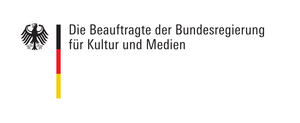Thomas Mann House Events Archive
February 2020
The Sound of San Remo Drive: A listening session with Alex Ross and Esa-Pekka Salonen
Thomas Mann House (1550 N San Remo Drive Pacific Palisades, CA 90272)

Information
In February 1920, a fateful visit to a friend’s home introduced Thomas Mann to a device that played recordings of the Tannhäuser Overture, La Bohème, and the Aida finale. Mann soon developed a deep and lasting fascination for the gramophone, noting in his diary that it was "a mentally and purely epic find." Shortly thereafter, Mann acquired his own gramophone and dedicated a whole chapter to "electric gramophone music" in his novel The Magic Mountain.
During Thomas Mann’s exile from Germany, music continued to be an integral part of his intellectual and social life in Los Angeles. At his house on San Remo Drive, Mann listened to his large collection of records — from Beethoven to Wagner to Benjamin Britten — and would host his friend the conductor Bruno Walter for musical evenings. At the house or in other settings, Mann had in-depth exchanges with some of the most influential musical figures of the time: Arnold Schoenberg, Theodor W. Adorno, Hanns Eisler, Ernst Toch and many others.
Inspired by these evenings, Alex Ross, music critic for The New Yorker, and Esa-Pekka Salonen, composer and conductor laureate of the Los Angeles Philharmonic and Music Director Designate of the San Francisco Symphony, will host a talk about Mann and his musical influences and contemporaries. The night will be complemented by listening to Ross and Salonen’s own collection of records from Mann’s time, which defined a new era of modern music.
By invitation only.
Partners
Villa Aurora & Thomas Mann House e. V. is supported by the German Federal Foreign Office and Federal Government Commissioner for Culture and the Media.


Workshop with Heike Paul: Gender and Reeducation in Japan, Germany, and the USA after World War II
GHI West UC Berkeley Campus (Moses Hall)

Information
The project seeks to identify the multidirectional influences, ramifications, and interdependencies between the US and Japan, the US and Germany as well as Japan and Germany which work in each of those domestic as well as foreign settings as part of a foundational discourse of legitimation. For instance, the positive self-representation of the US as a democratic exemplum to Japanese and German audiences points to attempts to mitigate social tensions and conflicts ‘at home’. Individual projects address gender regimes (in reeducation and Hollywood films as well as in Japanese women’s magazines), discourses on race (in cultural representations of and by African American soldiers and in Japanese-Okinawan identity constructions), and public opinion (broadcasting and public opinion research in Japan and Germany); instead of looking primarily at national developments, the aim is to study transnational relations, intra-cultural differences, and subnational formations. The main focus is on the construction of imagined communities as well as the ways in which reeducation efforts unfold in specific contexts characterized by asymmetrical power relations. Ultimately, this project works towards establishing “comparative reeducation studies” as an interdisciplinary field of study.
Programs
Thursday, February 20
8.30 a.m. Opening & Welcome by the Organizers: Claudia Roesch (GHI), Jana Aresin and Heike Paul (FAU)
9.00 – 10.15 a.m. Mire Koikari (University of Hawai’i): Re-visualizing Okinawa: Gender, Culture, and the Cold War in The Okinawa Graphic
Coffee Break
10.30 – 11.45 a.m. Jana Aresin (FAU): Consumers, Workers, Democratic Citizens? Renegotiation of Women’s Roles in US and Japanese Women’s Magazines, 1945-1960
Coffee Break
Noon – 1.15 p.m. Michiko Takeuchi (California State University): The International Women's Labor Movement and the US Occupation Liberation Policies on Japanese Women
Lunch Break
2.30 – 3.45 p.m. Tomoyuki Sasaki (William & Mary): An Army for the People: Democratization and Militarization in Postwar Japan
Coffee Break
4.00 – 5.15 p.m. Heike Paul (FAU): Women with(out) Men: Thoughts on the Construction of German Post-War Femininity
5.15 – 6.00 p.m. Shop Talk and Info Session on Transatlantic Cooperation with Nikolai Blaumer (Thomas Mann House), Claudia Roesch (GHI), and Katharina Gerund (FAU)
February 21, 2020
10.00 – 11.15 a.m. Sonia Gomez (University of Chicago): “Goodwill Ambassadors”: Domesticity and Citizenship in the Post-World War II Making of Japanese War Brides
Coffee Break
11.30 a.m. Film Screening + Discussion with director Kathryn Tolbert
Fall Seven Times, Get Up Eight – The Japanese War Brides
12.30 p.m. Brown Bag Meeting: US-Reeducation Films in Germany (Screening + comments by Heike Paul)
2.00 p.m. Closing Remarks
5.30 p.m. Conference Dinner at the GATHER
Participant
Heike Paul was born in Koblenz in 1968. From 1987 to 1994, she studied American Studies, Political Science, and English Studies at Goethe University Frankfurt and at the University of Washington, Seattle. After her master’s degree, she obtained her doctorate in the context of the research training group “Gender Difference and Literature” at LMU Munich and subsequently worked as a postdoc and assistant professor at Leipzig University, where she earned her postgraduate degree (Dr. phil. Habil.) in 2004. In the same year, she was appointed chair of American Studies at Friedrich-Alexander-University Erlangen-Nuremberg. Her research in cultural studies focuses especially on forms and functions of the sentimental (Global Sentimentality Project) and on dimensions of tacit knowledge. Heike Paul is a member of the Bavarian Academy of Sciences and Humanities and director of the Bavarian American Academy, in which she is deeply committed to transatlantic networking.
Partners
The event is organized by GHI and FAU as Part of the DFG-Project “Reeducation Revisited: Transnational and Comparative Perspectives on the Post-World War II Period in the US, Japan, and Germany.”







